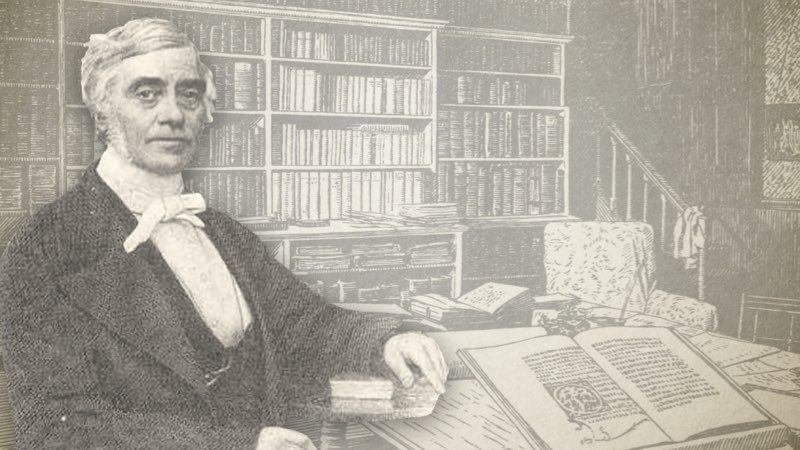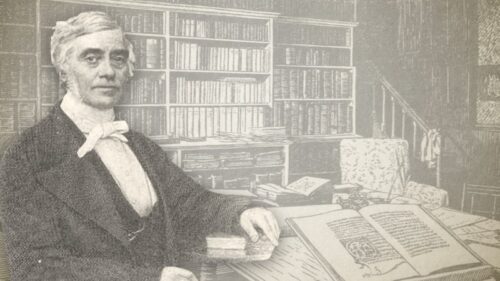-
5 What Is Intended By Looking Into The Perfect Law Of Liberty
We live in a day when speculative and superficial religion abounds to a great degree. It would be considered an insult to call any one an irreligious man. Almost all hands are engaged in holding up what they call religion; but among the vast crowds that are engaged in this work, it is to be feared the number is but small who are able to give an answer to any one that should ask them of the reason of their hope, or, in other words, who have looked into the perfect law of liberty. I have often observed, that even ministers, whose abilities are far from being contemptible as men, and who are considered preachers of the first rank, are fully satisfied with looking round…
-
6 To Make A Few Remarks Upon Continuing In This Perfect Law Of Liberty
On this head I shall be very brief. The apostle Paul seems to have the same things in view, when he says, "As ye have therefore received Christ Jesus the Lord, so walk ye in him." (Col 2:6) If ye received him as the Lord your righteousness and strength, your God, your life, your light, your wisdom, righteousness, sanctification, portion, and your all in all, walk in him as such. If ye have looked unto him and have been lightened, and your faces were not ashamed, continue to look unto him; he is still the same, and ye as much need him now as ever; for without him ye can do nothing. All your fruit is in him; and except ye abide in him by…
-
7 To Speak A Little On The Work That Is Done
This man is said to be, "not a forgetful hearer, but a doer of the word."' In speaking on this part of the subject, I shall consider the doing of the word in a twofold sense; viz., internally and visibly. 1st. Internally; which may be comprised in the work of faith, patience of hope, and labour of love. Faith is that grace of the Spirit by which the sinner believes in, looks unto, and rests upon Christ and his finished work for life and salvation. It is the business of faith against hope to believe in hope; that is, to rest upon the promise of God, in spite of all opposition. Though there be nothing in nature and reason but what militates against the accomplishment…
-
8 To Show That This Man Shall Be Blessed In His Deed
Observe, our text does not say, "This man shall be blessed for his deed," but "in his deed." God hath ordained both the end and the means, and what God has joined together let no man put asunder. To slight the means of grace, and pay but little attention to our deportment among men, is a sad evidence that we are not looking into the perfect law of liberty; and to expect God to bless us for our well-doing, is equally as absurd and dishonourable. The blessing of God is connected with the obedience of faith. But, with what shall "this man" be blessed? He shall be blessed with peace of conscience: "Great peace have they which love thy law; and nothing shall offend them"…
-
Often Do I Seriously Doubt Whether I Was Ever Converted At All
February 1, 1834 My dear Joseph Parry,—I have been partly prevented from answering your letter earlier by a painful inflammation of the eyes, which has been upon me this last fortnight, off and on, and is not yet subsided. I could wish I could give a more satisfactory answer to it than I fear you will find this to be. But my own mind is very dark, and the arm of the Lord is not yet revealed to me. The affair which I communicated to you went off more quietly than I had expected. Either the bishop was not applied to, or did not think it worth while to interfere. While that matter was pending, I was quite satisfied to leave it in the hands…
-
Heavenly Gifts To Victorious Saints
Preached at Eden Street Chapel, Hampstead Road, London, on Lord's Day Evening, August 30, 1846 "To him that overcometh will I give to eat of the hidden manna, and will give him a white stone, and in the stone a new name written, which no man knoweth saving he that receiveth it.”—Revelation 2:17 I do not know a more striking or more deeply important portion of God's Word than that which is contained in the first three chapters of the Book of Revelation. What a solemn vision was John favoured with, when the Lord of life and glory appeared unto him in the manner described in the first chapter! "And in the midst of the seven candlesticks I saw one like unto the Son of…




